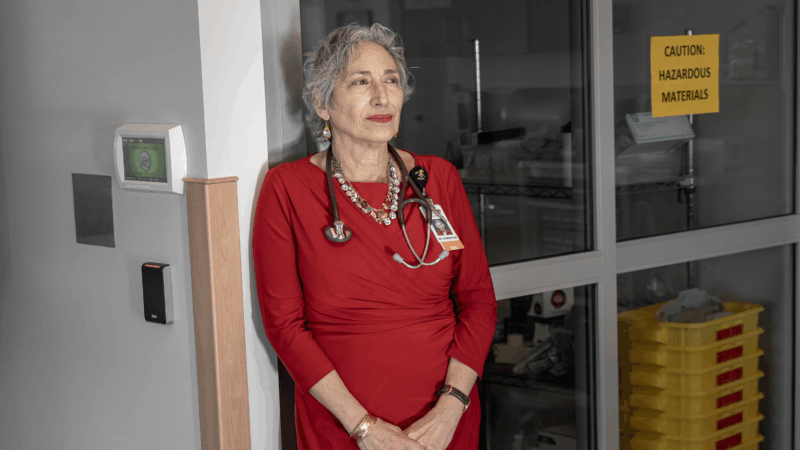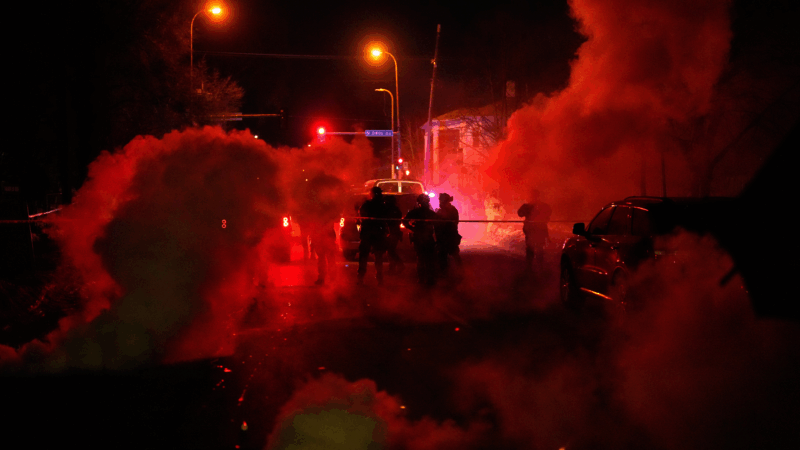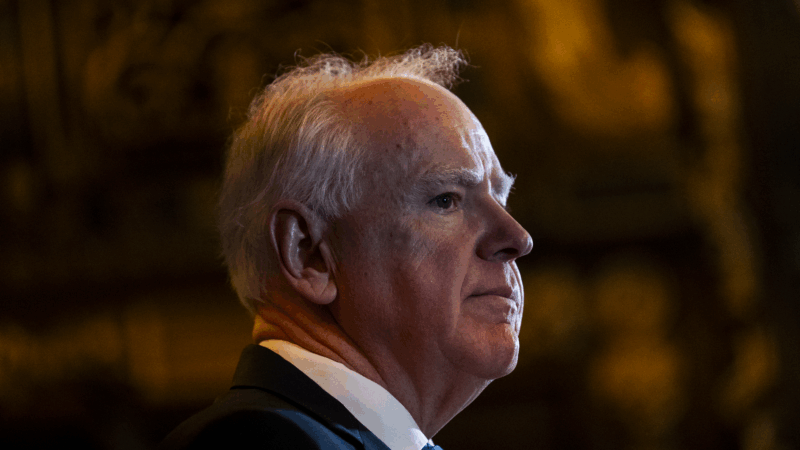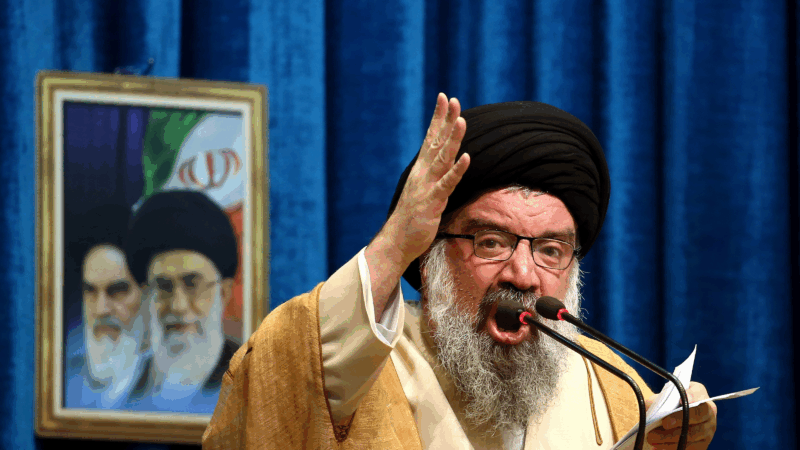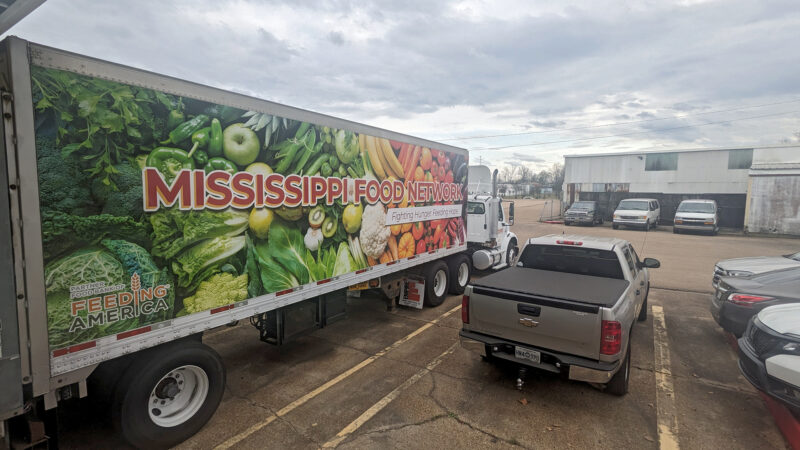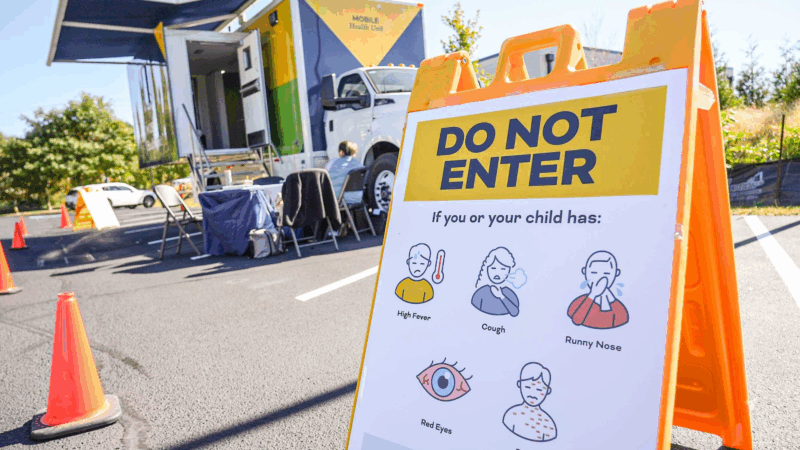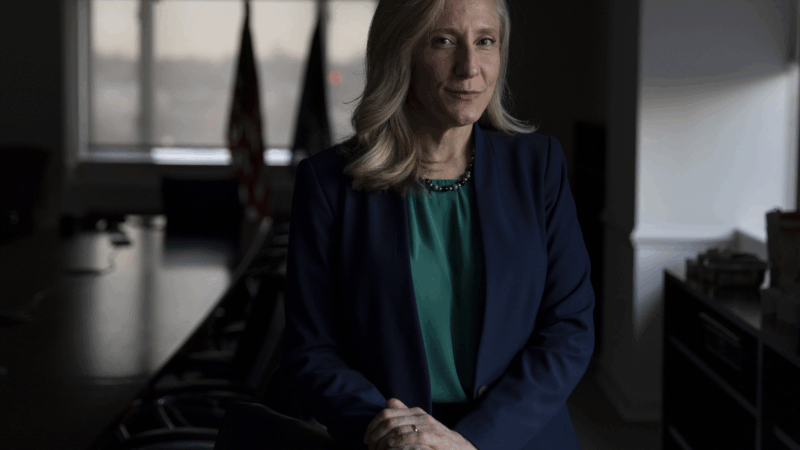In rural America, scarce doctors battle misinformation as they practice medicine
When Dr. Banu Symington first moved to Rock Springs, Wyo., 30 years ago, she appreciated its empty desert landscapes and small-town respect for physicians like herself.
Fast-forward to today.
Some of Symington’s cancer patients curse at her for suggesting they vaccinate or wear masks to protect their weakened immune systems while undergoing chemotherapy.
“I actually had a patient’s husband say, ‘You only want me to mask because you’re a liberal bitch.'”
Symington is among many doctors who say political attacks on science and medicine are affecting their relationships with patients, particularly in rural communities, where physician recruitment already poses a chronic challenge. Increasingly, misinformation and conspiracy theories about health fill a vacuum created by the lack of doctors, adding challenges to care. Meanwhile, the Trump administration’s dramatic changes to health, science, public health and immigration policies are making recruitment of overseas talent tougher.
Conspiracy theories
In the sparsely populated mineral and coal mining towns that dot the area around Rock Springs, Symington says disinformation and political rage run rampant. At a recent county fair, for example, she stood for four hours offering free vials of sunscreen to passersby — but got no takers. One woman asked “Do you want to know why?” and then told Symington: “Doctors have been putting cancer-causing chemicals in sunscreen so we’ll all get cancer and they’ll enrich themselves.”
Symington says such conspiracy theories and political divisiveness over health and science have worn away at the basic civilities that once made the community feel cohesive. “‘You’re a pharma whore,'” she’s told. “They say it to my face.”

A lung cancer patient of Symington’s refused vaccination, then died of COVID, still angrily believing the disease to be manufactured political fiction. Symington says until recent years, she’d been on friendly terms with that man, who always offered restaurant recommendations and suggestions for spots to rock hunt, which he knew was her hobby. His transformation is emblematic of a broader shift, she says.
“It’s very difficult, helping someone who scorns your help, or diminishes the value of it,” says Symington, who is 65 and on the cusp of retirement. “A lot of us who went into medicine did it because we believed we were helping people.”

There’s also a surge in use of ivermectin — an anti-parasite drug — adding to patients’ peril. “I have patients who are covertly taking ivermectin and then they end up in the intensive care unit because of a complication from the ivermectin,” Symington explains. They’re doing so on the advice of actor Mel Gibson, offered during his January appearance on Joe Rogan’s popular conservative podcast.
Physician shortages
Symington is one of only five full-time oncologists in Wyoming. She also runs the only radiation clinic in the southwest corner of the state; the next closest one is about a three-hour drive away, in Utah.
“When I retire, which may be sooner than I planned because of the atmosphere, I don’t think they’ll be able to recruit anyone,” she says.
The doctor shortage was already acute and is contributing to a shortening of the lifespans of rural Americans, says Alan Morgan, CEO of the National Rural Health Association.
“There are so many workforce shortages that people can’t get past the junk on the internet to get to a local doc that they can trust,” Morgan says. “The only solution really to combat that with is good science, good data, and make sure that local clinicians are at the forefront,” disseminating accurate information.
But staffing rural health care has also gotten tougher. For many decades, the U.S. has relied heavily on foreign-born doctors; half the country’s oncology workforce, for example, comes from overseas. Now, in large part because of the Trump administration’s cuts to science, medicine and research funding, as well as new immigration policies, fewer physicians can — or want to — come to the U.S.

Symington says this trend is evident in Rock Springs, too, which feels less hospitable, even to domestic transplants like herself, a white female who grew up and trained in Philadelphia.
“We had a whole bunch of physicians 30 years ago who had emigrated from Canada,” she says. “There are no immigrant physicians here now.”
Morgan says rural America suffers more from health care workforce shortages, because fewer than 5% of doctors grew up in those communities. Morgan sees fostering more homegrown talent as the key.
“We need to do a better job of keeping our local, rural kids local in the first place,” he argues. “That way they’re knowing the community, they’re trusted in the community, and they can be a trusted resource.”
Bias revealed
Dr. Jennifer Bacani McKenney is the type of person Morgan is referring to. Her family medicine practice is attached to the hospital in Fredonia, Kansas, where she was born. Her Filipino parents emigrated from big-city Manila to this tiny farming community of 2,000 people in the 1970s, when her father, a surgeon, was recruited to work there. Bacani McKenney says adapting to the community was difficult for her parents initially, but eventually the community embraced them.
“If this community had not welcomed my dad — or the country had not welcomed my dad — I would not be here and probably not have the doctors that I recruited here,” Bacani McKenney says.
Bacani McKenney grew up feeling treated like a hometown girl, but says the spread of COVID-19 also revealed how some of her patients perceive outsiders.
“My patients were calling COVID the China flu and Kung flu — that kind of thing — and saying about ‘Asians needing to go back,’ and they would say it to my face,” she recalls. “I would say, ‘You know, I am Asian, right?’ And they go, ‘Oh, well, we don’t mean you.'”
Bacani McKenney is also an associate dean at the University of Kansas, where she helps place medical students in rural communities for monthlong rotations as part of their curriculum. Recently, she says more students — many of whom grew up in cities, or are racial or sexual minorities — object to that requirement, complaining that they feel unsafe in the tiny towns. Patients will casually make racist jokes, for example. Navigating that, she tells them, is also part of the job.
“What we tell the students is, ‘You’re going to be uncomfortable in lots of situations in medicine.'”
But Bacani McKenney acknowledges politics makes health care harder to manage these days. She’s changed how she talks to patients about vaccines, for example. She suggests familiar ones first, hoping to minimize increasing skepticism about other vaccines, including to prevent COVID or flu.
“There’s something about a pneumonia shot or a tetanus shot — people are like, ‘Oh yeah, I know that,'” she says.
Nevertheless, more patients are pushing back against her vaccine recommendations, especially since anti-vaccine champion Robert F. Kennedy Jr. took the helm as Health and Human Services secretary and began amplifying views unsupported by scientists and doctors. With them, she tries to keep the conversation going over several visits, if necessary. It’s the kind of balancing act her job now requires, she says.
“I think we have to keep doing it. And if people don’t like us because we’re having that conversation, they’ll probably go somewhere else,” she says. “But if I don’t have those conversations, I’m not doing my job.”

Katie Hayes Luke edited the visuals for this story. Charles Paajoe Tetteh contributed photography.
Judge rules immigration officers in Minneapolis can’t detain peaceful protesters
Officers in the Minneapolis-area participating in a U.S. immigration enforcement operation can't detain or tear gas peaceful protesters who aren't obstructing authorities, a judge ruled Friday.
Justice Department opens investigation into Minnesota governor and Minneapolis mayor
Federal prosecutors are investigating Gov. Tim Walz and Mayor Jacob Frey.
No sign of new protests in Iran as a hard-line cleric calls for executions
A Iran returns to an uneasy calm after protests led to a violent crackdown, a senior cleric is calling for the death penalty for detained demonstrators. His sermon Friday also threatened U.S. President Trump.
Gulf South food banks look back on a challenging year as another shutdown looms
Federal funding cuts and a 43-day government shutdown made 2025 a chaotic year for Gulf South food banks. For many, the challenges provide a road map for 2026.
Measles is spreading fast in S.C. Here’s what it says about vaccine exemptions
More than 550 people have contracted measles in Spartanburg County, S.C., in a fast-growing outbreak. Like a majority of U.S. counties, nonmedical exemptions to school vaccination are also rising.
It took 75 governors to elect a woman. Spanberger will soon be at Virginia’s helm
Abigail Spanberger, a former CIA officer and three-term congresswoman, is breaking long-held traditions on inauguration day. She says she wants her swearing-in to showcase the state's modern vibrancy.

